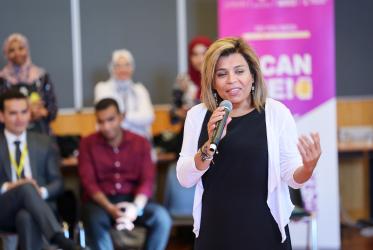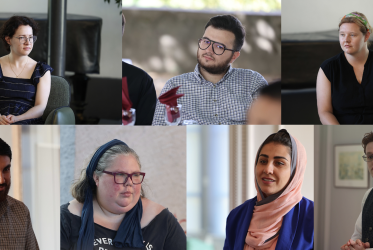Displaying 1 - 20 of 124
17 April 2024
WCC, WHO commemorate 50 years of collaboration
04 April 2024
Voice of churches vital during UN women’s rights talks
28 March 2024
WCC webinar explores decolonizing beauty
11 December 2023
ACT Alliance general secretary: “equity is not negotiable”
26 September 2023



















